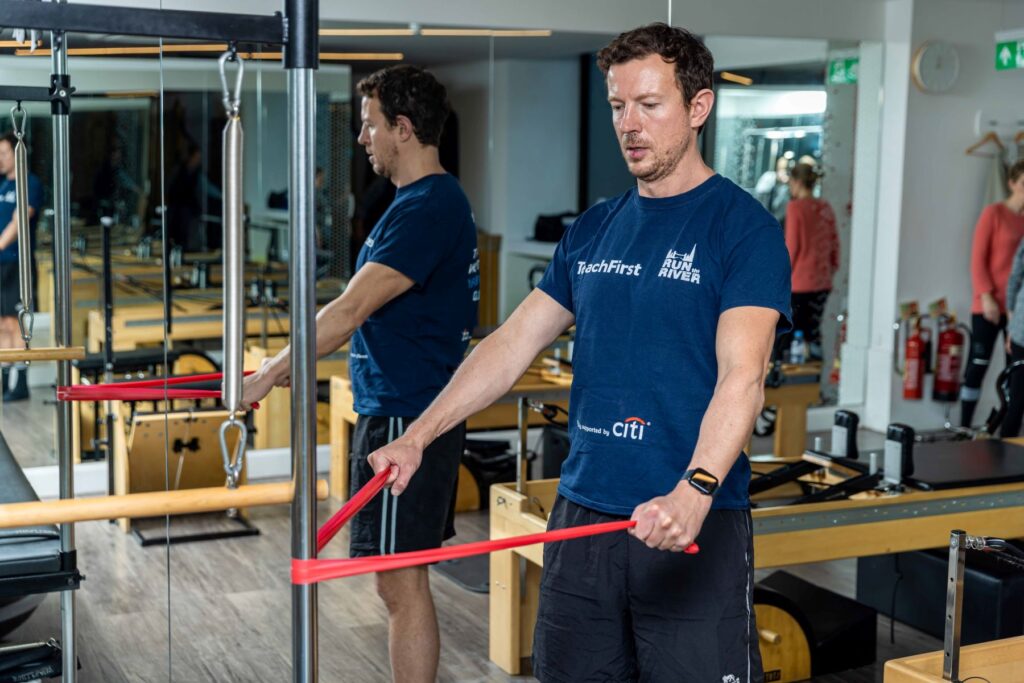Oncology Physiotherapy in London
Services
Move well and live well. Shift focus from illness to wellness.
Oncology Physiotherapy can help you at any stage of your cancer diagnosis and treatment. Our focus is to get you back to doing the things you love, safely and effectively.
Our qualified oncology physiotherapist will personalise their treatment to you after assessment of your current limitations and what you would like to get back to. This will be done safely, ensuring we are promoting tissue healing. The service is a combination of manual therapy, gradual mobility, strength and balance exercises and education with an experienced oncology physiotherapist.
Often people affected by cancer do not know where to start to get back to physical activity and activities around the house. Our physiotherapy team can help you to get back to what you love doing.
Cancers we can treat:
- Breast cancer
- Prostate cancer
- Bowel cancer
- Gynaecological cancer
- Lung cancer
- Blood cancer
- Skin cancer
- Head and neck cancer
- Other cancers


What can we help with:
- Cording/axillary web syndrome
- Scar management
- Posture
- Shoulder dysfunction
- Fatigue management
- Incontinence
- Erectile dysfunction
- Pelvic floor function
- Sexual function
- Pain management
- Core stability
- Range of movement
- Muscle strengthening
- Balance training
- Shortness of breath and breathing
- Return to exercise
Your Tailored Assessment:
Jade, our Specialist Oncology Physio based at Chelsea, will spend the time understanding you, your current function and your pain. Liaising with your oncologist is a crucial part of this assessment, to fully understand your story and your treatment history.
Together you will create a programme of Physio, Rehab and exercises you can do at home, all of which are realistic and achievable, and can be adapted as frequently as necessary depending on your progress. Our only aim is to improve your symptoms and help you achieve your goals.

Your cancer treatment journey:
Whether you have just received your diagnosis, are undergoing chemotherapy, recovering from surgery or had cancer 15 years ago, we are able to help you through any part of your journey.
We understand how life changing this diagnosis is and we are here to help you every step of the way.
This service is currently available at the following clinic:
Frequently Asked Questions
What is oncology physiotherapy?
Our physiotherapists specialise in assisting you through your cancer journey. Often many treatments cause unwanted side effects and specialist oncology physiotherapy has shown to improve these side effects.
What training do oncology physiotherapists have?
Our physiotherapist Jade has completed PINC and STEEL training, a 12 week specific oncology rehabilitation certification. This is an extensive training programme that includes weekly assessments.
Is oncology physiotherapy safe?
Our physiotherapist Jade, has done specialised training in oncology physiotherapy and has PINC and STEEL certification. We will ensure that you are safe to undergo physiotherapy and will keep in regular communication with your oncologist.
How many sessions will I need?
This is very specific to your current limitations. We will start with an initial assessment to understand what you are struggling with. At this assessment we will outline how many sessions you may require.
How can oncology physiotherapy help me?
We can ensure you are able to get back to your daily activities and exercise safely. We will work with you, and your current fitness levels to build you back up.
If you are struggling with specific tightness, reduced strength, postural issues or breathing dysfunction we can improve these.
How soon can I start oncology physiotherapy?
We can see you at any stage of your treatment – before, during or after. This will ensure you are active throughout treatment, which has shown to reduce many treatment related side effects.
What does research say about cancer and exercise?
Exercise after a cancer diagnosis is associated with a reduction in cancer related death by up to 44%
Exercise may also reduce the risk of cancer recurrence by up to 35%
Exercise is the number one treatment for the most common and debilitating side effects of cancer
